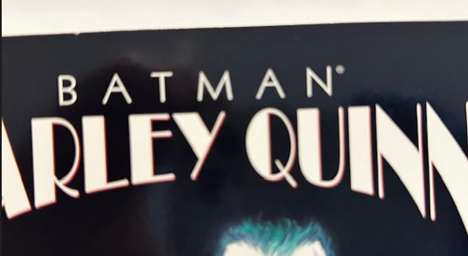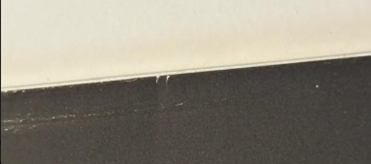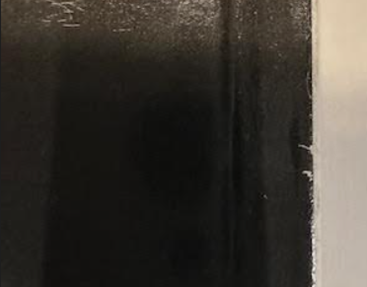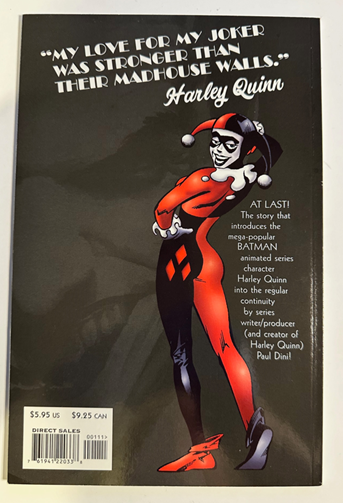BATMAN – HARLEY QUINN #1 1999 FIRST PRINTING
- David Edwards
- Feb 11
- 3 min read
FIRST IMPRESSIONS

Phase | Opinion |
First Impression | The cover does not shine and has a dull reflection. Although appears to be dirt as opposed to the inks fading. |
Identify variants | First Printing, Direct Edition, Origin & 1st appearance of Harley Quinn DC Universe continuity. |
Page count and quality | White all pages are there. |
Check for restoration | No restoration is visible. |
CLOSER LOOK
Finger print on the cover

Damage to the top of the cover edge.

Crease impact the spine and dint.

CLEANING THE FRONT COVER
A basic clean was performed first, this removed all of the surface dirt, although had no impact on the fingerprint. As this is a glossy comic, it is likely the figure print has not lifted the color off the comic and is just surface dirt.
Removing the Fingerprint

With a low amount of pressure, I gently rubbed the area with the fingerprint.
The big challenge here is balancing pressure and not rubbing to hard. While this did reduce the visibility of the finger print, I could not fully remove it using this method.

I have achieved what I can with dry cleaning techniques. The print although faded, is still visible on the “M” and above the “M”.

Glossy comics that are glue-bound on the spine are more resistant to moisture. However, water damage is more likely to be permanent. Therefore, I applied a small amount of deionized water and gently wash the fingerprint away. Then wiped off the water before it is absorbed by the cover.

This completly removed the finger print.
It is very important to complete the cleaning before pressing, the print could have become permanent if pressed without being removed, below is the cleaned front cover: Below is the final result of cleaning the front cover.

THE BACK COVER
When considering to treat the back cover I needed to have a closer look at the defects. Any form of treatment risks damaging the comic. I have to make a call on whether removing a defect will improve the grade.
The defects
This is a colour-breaking spin tick, so a nonremovable defect.

Also, It impacts at least an inch of the back cover. . However, given it is color-breaking we will not take any unnecessary risks.


Using the tracking iron to treat the problem areas. Note I put a large backing board behind the back cover page.
On occasion, heat can cause pages to stick together damaging the inside pages, therefore, short bursts of treatment and never holding the iron still help reduce this risk.
Also, glossy covers are sensitive to heat, therefore, quick 3-4 seconds of heat and pressure are enough.

The following is the treated area, the tick has been moved but the color breaking remains.

This is damage to the center of the back cover, closer inspection shows this is color could be color breaking.

Rubbing the area with a metal ball will yield the best results in this case. Do not put the ball directly on the cover. If the ball slips under pressure this will scratch the comic.
Also if you have applied heat the ball will pull the color from the comic/

The treatment will initially cause dents in the comic. Not to be alarmed. Once heat treated it will return to a normal state.

After treatment with the tracking iron, appears to also remove the color break. Therefore, this was likely just the light reflected on the original defect.
The final back cover is shown below, noting the spine tick color damage on the main cover we can’t expect miracles. But it is a looking really good.


All that was need now was a press to flatten the comic.
FINAL RESULT
The finally result was a 9.8, therefore, and excellent outcome.






